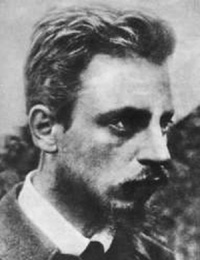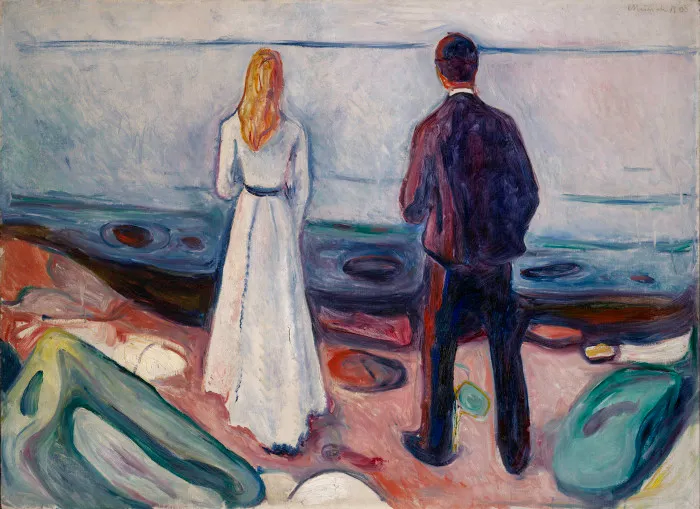The Book Beat reading group selection for April is The Notebooks of Malte Laurids Brigge by Rainer Maria Rilke. We will meet virtually online via Zoom on Wednesday, April 24 at 7 p.m. The Zoom link will be sent on the afternoon of the meeting to anyone interested in attending. Email bookbeatorders@gmail.com to sign up. Books are in stock and discounted 15%. The Book Beat reading group features international works in translation, and discussions are free and open to the public. Please call (248) 968-1190 for more information.
A stunning, revelatory new translation of the only novel by one of the greatest poets of the twentieth century, from one of “the most trustworthy and exhilarating of Rilke’s contemporary translators”
–Michael Dirda, Washington Post.
A groundbreaking masterpiece of early European modernism originally published in 1910, The Notebooks of Malte Laurids Brigge unspools the vivid reflections of the titular young Danish nobleman and poet. From his Paris garret, Brigge records his encounters with the city and its outcasts, muses on his family history, and lays bare his earliest experiences of fear, tenderness, and desolation.
With a poet’s feel for language and a keen instinct for storytelling, Rainer Maria Rilke forges a dazzlingly fractured coming-of-age narrative, kaleidoscopic in its alternation of vivid present encounters and equally alive memories of childhood. Strikingly contemporary, The Notebooks of Malte Laurids Brigge reveals a writer metabolizing his own experiences to yield still-essential questions about fiction and reality, empathy and psychosis, and—above all—life, love, and death.
In a fascinating introduction, award-winning translator Edward Snow explores the overlaps between Rilke’s experiences and those of his protagonist, and shows with granular attention the novel’s capacity for nuance and sympathy. Snow’s exquisite translation captures as never before the astonishing cadences and musical clarity of the poet’s prose. It reveals The Notebooks of Malte Laurids Brigge as an urgent contemporary achievement, more than one hundred years after it was written.
“This book has been central for many young poets, in many languages, for generations. Now, Edward Snow has created a fresh, inviting version in English.”
–Robert Pinsky
“The Notebooks matches the literary heights of Rilke’s finest verse…Edward Snow’s new translation is an opportunity to revisit this elusive masterpiece.”
–Ratik Asokan, The Nation
“This brilliant new translation walks right off the page into the streets of Paris and into the recessed corridors of memory and impassioned imagination.… Sentence by sentence, Snow releases the hallucinatory revelations of a mind creating its own indelible tracks between ‘curiosity and dread,’ between shocking estrangement and almost unbearable sympathy. I first read the Notebooks in earlier translations fifty years ago; they have never felt so radiant, so nuanced, so immediately yet enduringly prophetic.”
–Peter Sacks
“The Notebooks of Malte Laurids Brigge is a loosely autobiographical novel about a student who is the last descendant of a noble Danish family (Rilke believed, erroneously according to his biographers, that he was distantly related to Carinthian nobility), and follows his life from his birth to a grim, poverty-stricken life as a student in Paris. Images of death and decay (especially in the Paris scenes) and Malte’s fear of death are a continuous presence throughout the narrative. Because Rilke never finished The Notebooks of Malte Laurids Brigge (in one of his letters, the author told a friend he ended the book “‘out of exhaustion,’” reported Schoolfield) Malte’s ultimate fate is left ambiguous. In one of Rilke’s letters translated in Letters of Rainer Maria Rilke: 1910-1926, the author remarked that the most significant question in The Notebooks of Malte Laurids Brigge is: “[How] is it possible to live when after all the elements of this life are utterly incomprehensible to us?” As William Rose determined in Rainer Maria Rilke: Aspects of His Mind and Poetry, The Notebooks of Malte Laurids Brigge actually was kind of a catharsis for the author in which “Rilke gave full vent… to the fears which haunted him.” “Without the Notebooks behind him,” Wood concluded, “the poet would hardly have ventured” to write the Duino Elegies in 1912.” —The Poetry Foundation
“Oh, what a happy fate, to sit in the quiet room of an ancestral house among endless calm, settled things and hear outside the airy, light green garden the first wrens tuning up and in the distance the village clock.” -Rilke, The Notebooks of Malte Laurids Brigg
 Rainer Maria Rilke (1875–1926), the author of Sonnets to Orpheus, Duino Elegies and Letters to a Young Poet, was one of the greatest poets of the German language.
Rainer Maria Rilke (1875–1926), the author of Sonnets to Orpheus, Duino Elegies and Letters to a Young Poet, was one of the greatest poets of the German language.
Widely recognized as one of the most lyrically intense German-language poets, Rainer Maria Rilke was unique in his efforts to expand the realm of poetry through new uses of syntax and imagery and in an aesthetic philosophy that rejected Christian precepts and strove to reconcile beauty and suffering, life and death. As C. M. Bowra observed in Rainer Maria Rilke: Aspects of His Mind and Poetry, “Where others have found a unifying principle for themselves in religion or morality or the search for truth, Rilke found his in the search for impressions and the hope these could be turned into poetry… For him Art was what mattered most in life.” —Poetry Foundation

